African American Athletes in Sports History
African American Athletes. The narrative of sports in America is incomplete without acknowledging the profound contributions of African American athletes. These individuals not only excelled in their respective sports but also played crucial roles in the larger struggle for civil rights and social justice. From the early days of segregation to the modern era of professional athletics, African American athletes have consistently challenged societal norms, shattered racial barriers, and inspired generations. Their journeys reflect not just personal triumphs but also the ongoing fight for equality and representation in a country often marred by racial discrimination.
The significance of African American athletes extends beyond the playing field; they have become symbols of perseverance and resilience. Their stories illuminate the intersection of sports and culture, highlighting how athletic excellence can serve as a powerful platform for advocacy and change. As we explore the historical impact of these athletes, it becomes evident that their influence is intricately woven into the fabric of American history, shaping both sports and society.
Recognizing the achievements and struggles of African American athletes helps us understand the broader context of their impact, revealing how their legacies resonate today. This exploration not only honors their contributions but also underscores the ongoing challenges that persist within the realm of sports and beyond. By examining their historical roles, prominent figures, and the challenges they face, we can appreciate the rich tapestry of African American athletes in sports history and their enduring significance in the fight for equality and justice.
II. Historical Impact of African American AthletesThe historical impact of African American athletes extends far beyond the confines of sports; it intertwines with the broader narrative of civil rights, social justice, and cultural change in the United States. From the early days of segregation to the present, these athletes have played pivotal roles in challenging the status quo, paving the way for future generations, and inspiring millions around the globe.
A. The Role of African American Athletes in Breaking Racial BarriersAfrican American athletes have consistently been at the forefront of efforts to break racial barriers in sports. The integration of sports in America often mirrored the larger civil rights movement, with athletes serving as key figures in the struggle for equality. Pioneers like Jack Johnson, the first African American heavyweight boxing champion, not only dominated the ring but also challenged societal norms by openly defying the racial stereotypes of his time. His victory over white champion Tommy Burns in 1908 was a watershed moment that ignited both admiration and outrage across the nation.
Fast forward to the mid-20th century, and the emergence of figures such as Jackie Robinson marked a significant turning point. Robinson's historic debut with the Brooklyn Dodgers in 1947 broke Major League Baseball's color barrier, making him a symbol of hope and resilience for many African Americans. His courage in the face of intense racism and hostility opened doors for countless athletes and signified a shift towards greater inclusion in professional sports.
B. Key Figures in the Civil Rights Movement and Their Athletic ContributionsThe intersection of sports and the civil rights movement is exemplified by athletes who used their platforms to advocate for social change. Muhammad Ali, perhaps the most iconic figure in boxing, transformed the sport and became a vocal advocate for civil rights. By refusing to be drafted into the Vietnam War, citing his opposition to racism, Ali not only sacrificed his boxing titles but also set a powerful precedent for athletes as activists. His stance resonated deeply with the African American community and beyond, inspiring a generation to stand up against injustice.
Similarly, the 1968 Olympics became a defining moment in sports history when Tommie Smith and John Carlos raised their fists in a Black Power salute during the medal ceremony. This act of defiance drew global attention to the civil rights struggle and highlighted the role of athletes as agents of change. Their actions sparked conversations about race, identity, and activism within the realm of sports, showcasing the profound influence that African American athletes wielded during a tumultuous period in American history.
C. The Evolution of Black Representation in Professional SportsOver the decades, the representation of African Americans in professional sports has evolved significantly, reflecting broader societal changes. Early on, African American athletes were often relegated to segregated leagues, facing systemic discrimination and limited opportunities. However, as barriers began to crumble, the presence of African American athletes in mainstream sports flourished. The success of athletes like Bill Russell in basketball, who led the Boston Celtics to 11 championships, and Althea Gibson, the first African American woman to compete at Wimbledon, underscored the growing acceptance and recognition of African American talent.
Today, African American athletes dominate many professional sports, serving as role models and symbols of excellence. Their influence extends beyond the playing field, as they engage in philanthropic efforts and advocate for social justice issues. Yet, the journey towards true equality and representation is ongoing, with continued challenges highlighting the need for systemic change within the sports industry.
In summary, the historical impact of African American athletes is a testament to their resilience and determination to overcome adversity. Through their contributions, they have not only transformed the landscape of sports but have also played vital roles in the fight for civil rights and social justice, leaving an indelible mark on both history and culture.
III. Prominent African American AthletesThe landscape of sports has been profoundly shaped by the contributions of African American athletes, whose achievements extend beyond the realm of competition and into the fabric of social change. This section highlights three monumental figures: Jackie Robinson, Muhammad Ali, and Serena Williams, each of whom has left an indelible mark on their respective sports while also advocating for equality and justice.
A. Jackie Robinson and His Legacy in BaseballJackie Robinson's entry into Major League Baseball (MLB) in 1947 as the first African American player in the modern era was a watershed moment in sports history. Breaking the color barrier in a league that had been segregated for decades, Robinson's courageous debut with the Brooklyn Dodgers challenged the status quo and paved the way for future generations of athletes. Despite facing severe racism, hostility from fans and opposing players, and immense pressure to perform, Robinson maintained his composure, becoming not only a sports icon but also a symbol of the civil rights movement.
Robinson's impact extended beyond the baseball diamond; he used his platform to advocate for civil rights and social justice. His legacy is celebrated annually on Jackie Robinson Day, when every player in MLB wears his iconic number 42 in tribute to his contributions. Robinson's story exemplifies how sports can serve as a catalyst for social change and the ongoing fight against racial injustice.
B. Muhammad Ali's Influence Both In and Out of the RingMuhammad Ali, celebrated as one of the greatest boxers of all time, transcended sports with his magnetic personality, athletic prowess, and unwavering principles. Known for his quick footwork, powerful punches, and charismatic trash talk, Ali's boxing career was highlighted by historic bouts, including his legendary fights against Sonny Liston, Joe Frazier, and George Foreman. However, it was Ali's stance on social issues that truly set him apart.
A vocal critic of the Vietnam War, Ali refused to be drafted into the military on the grounds of his religious beliefs and opposition to the war, famously stating, “I ain’t got no quarrel with them Viet Cong.” This decision led to a suspension from boxing and a loss of his championship titles, but it also solidified his role as a civil rights activist. Ali's courage to stand up for his beliefs earned him both admiration and criticism, and his legacy continues to inspire athletes to use their platforms for advocacy.
C. Serena Williams and Her Impact on Women's TennisSerena Williams has redefined women's tennis and continues to be a powerful force both on and off the court. With an impressive record of 23 Grand Slam singles titles, Williams has not only dominated the sport but has also challenged stereotypes related to race, gender, and body image. Her powerful playing style, characterized by her athleticism and fierce competitiveness, has captivated audiences around the world and has inspired a new generation of female athletes.
Beyond her accomplishments in tennis, Williams has been an outspoken advocate for gender equality and racial justice. She has used her platform to address issues such as pay equity and the representation of women of color in sports. Williams' resilience in the face of adversity—whether it be injuries, criticism, or societal expectations—has made her a role model for countless individuals, emphasizing the importance of strength, perseverance, and advocacy in the struggle for equality.
In conclusion, the legacies of Jackie Robinson, Muhammad Ali, and Serena Williams illustrate the profound impact that prominent African American athletes have had on sports and society. Their achievements not only transformed their respective sports but also contributed to broader movements for justice and equality, affirming that the influence of these athletes extends far beyond the arena.
IV. Challenges Faced by African American AthletesDespite their remarkable achievements and contributions to the world of sports, African American athletes have consistently faced numerous challenges that have shaped their experiences both on and off the field. These challenges stem from deep-rooted systemic issues and societal attitudes that continue to impact their careers and lives.
A. Systemic Racism and Its Effects on Athletes' CareersSystemic racism remains a pervasive issue within the sports industry, affecting not only the opportunities available to African American athletes but also the environments in which they compete. From youth sports leagues to professional organizations, racial bias can manifest in various ways, including lack of access to resources, opportunities for advancement, and equitable treatment. Many African American athletes have reported experiences of discrimination, which can hinder their career progression and overall well-being. The impact of these inequalities can often be seen in the representation within coaching positions, management, and executive roles, where African Americans remain significantly underrepresented, limiting their influence in decision-making processes that affect athletes' careers.
B. The Struggle for Equal Pay and RepresentationThe fight for equal pay and representation has been a longstanding issue for African American athletes, particularly among women in sports. While some prominent athletes have achieved financial success, the disparities in earnings between athletes of different races and genders highlight ongoing inequities. For instance, female athletes, including many African American women, often receive significantly less prize money and sponsorship opportunities compared to their male counterparts, even when they achieve equal or superior performance levels. This disparity calls attention to not only gender inequality but also racial disparities that persist within the sports industry. The advocacy for equal pay and representation continues to be a critical issue, as African American athletes push for policies that promote fairness and equity across all levels of sport.
C. Mental Health Issues Within the African American Sports CommunityMental health is an increasingly recognized concern within the sports community, yet African American athletes often face additional cultural stigmas and pressures related to mental health discussions. The historical context of racial discrimination and the expectation to perform at high levels can lead to significant psychological stress. Many athletes feel compelled to suppress their mental health struggles due to fears of being perceived as weak or unfit for competition. This stigma, combined with limited access to mental health resources, can exacerbate existing issues, making it essential for the sports industry to foster an environment that prioritizes mental wellness and encourages open conversations about mental health among athletes.
In summary, while African American athletes have made substantial contributions to sports and society, they continue to confront systemic challenges, including racism, pay inequities, and mental health stigmas. Understanding these challenges is crucial in acknowledging the resilience and determination of these athletes as they strive for equality and recognition in their respective sports.
Frequently Asked Questions (FAQs) for African American Athletes 1. Who are some notable African American athletes?African American athletes have made significant contributions across various sports. Some notable figures include:
- Jackie Robinson: The first African American to play in Major League Baseball (MLB).
- Serena Williams: One of the greatest tennis players of all time, with numerous Grand Slam titles.
- Muhammad Ali: A legendary boxer known for his athletic prowess and activism.
- Michael Jordan: Widely regarded as one of the greatest basketball players in history.
African American athletes have played a pivotal role in breaking racial barriers, advocating for social justice, and excelling in their respective sports. Their contributions include:
- Pioneering Integration: Many African American athletes were among the first to integrate professional sports, paving the way for future generations.
- Social Activism: Athletes like Colin Kaepernick and Muhammad Ali have used their platforms to address social issues and promote equality.
- Record-Breaking Performances: African American athletes have set numerous records and achieved milestones, inspiring countless others.
Supporting African American athletes can be done in several ways:
- Promote Diversity: Advocate for diversity and inclusion in sports organizations and programs.
- Attend Events: Support athletes by attending games, matches, and events they participate in.
- Follow and Share: Engage with their social media platforms, share their achievements, and promote their sponsored events.
Yes, there are numerous programs aimed at supporting young African American athletes. Some include:
- Scholarship Programs: Various organizations offer scholarships for talented young athletes to pursue education and sports.
- Mentorship Opportunities: Programs connect young athletes with experienced professionals in their chosen sports.
- Community Initiatives: Local organizations often provide training camps, workshops, and resources specifically for young African American athletes.
Despite their successes, African American athletes encounter several challenges, including:
- Racial Discrimination: Many face systemic racism and bias within sports organizations and society overall.
- Media Representation: Stereotypes and negative portrayals in the media can impact their public perception.
- Access to Resources: Economic disparities may limit access to training, coaching, and facilities for aspiring athletes.
To deepen your understanding of the history of African American athletes, consider:
- Reading Biographies: Explore biographies of influential African American athletes to learn about their lives and contributions.
- Documentaries and Films: Watch documentaries that highlight the journeys and challenges faced by African American athletes.
- Visit Museums: Museums dedicated to sports history often have exhibitions focused on the impact of African American athletes.
African American athletes often give back to their communities through:
- Charitable Foundations: Many athletes establish foundations to support education, health, and sports initiatives.
- Youth Programs: They frequently engage with youth through camps, mentorship, and educational workshops.
- Advocacy: Athletes use their platforms to raise awareness about social and economic issues affecting their communities.
African American athletes have historically been at the forefront of social justice movements. Their roles include:
- Advocacy: Using their visibility to speak out against injustice and promote equality.
- Fundraising: Organizing and participating in fundraising efforts for various social causes.
- Public Engagement: Engaging in public discussions, interviews, and campaigns to raise awareness about vital social issues.
As we reflect on the legacy of African American athletes, it is essential to recognize both their remarkable achievements and the hurdles they continue to navigate. Their journey is one of resilience and determination, serving as a powerful reminder of the need for continued advocacy and reform. The fight for equality in sports is far from over, and the voices of African American athletes will undoubtedly remain at the forefront of this movement, pushing for a more inclusive and equitable future in athletics and beyond.
V. Conclusion Summarizing the Contributions and Ongoing Challenges of African American AthletesIn conclusion, African American athletes have played an instrumental role in shaping the landscape of sports, serving as trailblazers who not only excel in their respective fields but also challenge societal norms and advocate for justice. Their contributions extend far beyond the playing field; they have utilized their platforms to address racial inequalities and inspire future generations. From Jackie Robinson breaking the color barrier in Major League Baseball to Muhammad Ali standing up for civil rights and social justice, these athletes have left indelible marks on history, illustrating the profound intersection of sports and social change.
However, despite their achievements, African American athletes continue to face significant challenges that threaten to undermine their contributions. Systemic racism remains a pervasive issue, impacting opportunities and experiences within professional sports. The ongoing struggle for equal pay and representation highlights the disparities that still exist in the industry, while mental health issues, often exacerbated by the pressures of fame and societal expectations, require urgent attention and support.
https://howtoplaythedjembedrums.com/african-american-athletes/

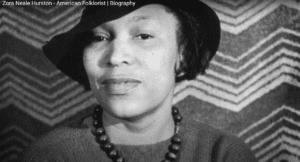

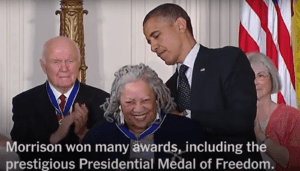
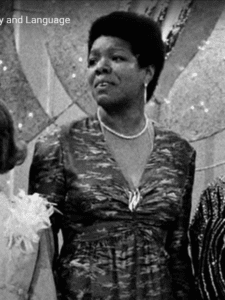



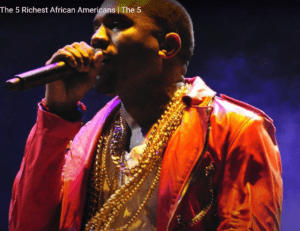
 Breaking the Color Barrier in the NBA
In 1950, three African American players made history:
Breaking the Color Barrier in the NBA
In 1950, three African American players made history:




 Why Representation Matters in Fashion
Why Representation Matters in Fashion


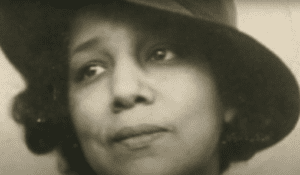
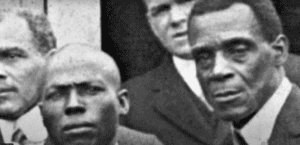

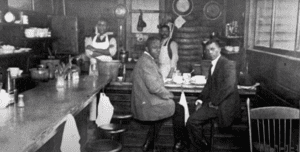
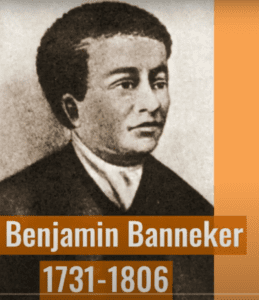 In recent years, there has been a growing recognition of the importance of diversity in STEM (Science, Technology, Engineering, and Mathematics) fields, which has highlighted the need to celebrate and promote the work of African American mathematicians. By examining their contributions, we not only honor their legacy but also inspire future generations to pursue careers in mathematics and related fields. This introduction sets the stage for a deeper exploration of the notable figures within this community, the barriers they faced, and the promising future that lies ahead for
In recent years, there has been a growing recognition of the importance of diversity in STEM (Science, Technology, Engineering, and Mathematics) fields, which has highlighted the need to celebrate and promote the work of African American mathematicians. By examining their contributions, we not only honor their legacy but also inspire future generations to pursue careers in mathematics and related fields. This introduction sets the stage for a deeper exploration of the notable figures within this community, the barriers they faced, and the promising future that lies ahead for 

 Frequently Asked Questions (FAQs) about African American Mathematicians
1. Who are some notable African American mathematicians?
Answer:
Some prominent African American mathematicians include:
- Benjamin Banneker: A self-taught mathematician and astronomer known for his work in surveying and almanac-making.
- Mary Jackson: The first African American female engineer at
Frequently Asked Questions (FAQs) about African American Mathematicians
1. Who are some notable African American mathematicians?
Answer:
Some prominent African American mathematicians include:
- Benjamin Banneker: A self-taught mathematician and astronomer known for his work in surveying and almanac-making.
- Mary Jackson: The first African American female engineer at